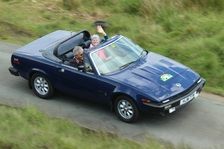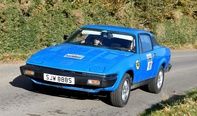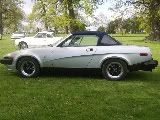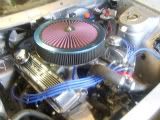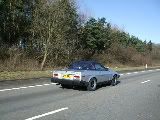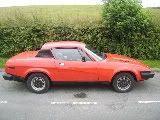I have been running my 7 with the over run valves soldered closed for past 8+ yrs. Not experienced any problems tuning or running, and no visible oil smoke or consumption problems during that time. DM
Following info from Burlen fuel systems website
"Overrun Limiting Valve
A precisely set spring-loaded plate valve is located in the throttle disc. The valve opens under high manifold depression conditions, i.e. overrun at closed throttle, reducing the depression and supplying a quantity of correct fuel/air mixture through the throttle disc. The correct combustion achieved reduces the value of hydrocarbon emission which would otherwise be emitted under these conditions."

